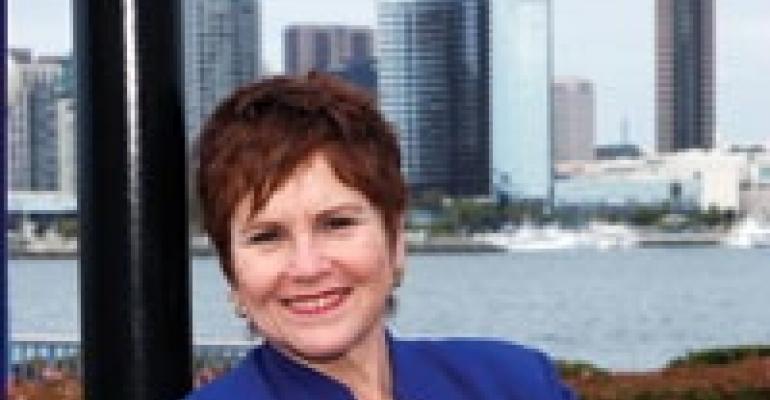
Patricia (Patti) Roscoe “never looked back,” she says, when, after 15 years in the hospitality industry, she started her own DMC in 1981. Business boomed, and by 1997, her Carlsbad, Calif.-based DMC had blossomed into the nationwide PRA Destination Management franchise system. The company grew to 19 offices before Roscoe sold PRA in November 2007 to Allied International, an international DMC with offices in Europe, Arabia and North America. Now director of PRA, Roscoe is in “semi-retirement,” she says, but still keeps a watchful eye on the DMC business while promoting its future with such endeavors as co-founding the School of Hospitality & Tourism Management at San Diego State University. To kick off SDU's recent Institute of Meetings and Events, Roscoe contributed the Patti Roscoe Professorship endowment as her legacy to the industry.
But before addressing the future of the industry, there's the present to handle. Here, Roscoe examines what's next for DMCs in today's turbulent economy.
SPECIAL EVENTS MAGAZINE: How has the DMC business changed for the better since you started?
PATTI ROSCOE: DMCs were primarily small companies that did city tours and airport transportation. As business group travel expanded, especially in the area of performance-improvement rewards programs, DMCs had not only to expand their destination offerings but had to become educated in the psychology of understanding the goals of the client and attendees/winners. This process helped us all become much more knowledgeable about the business side of our industry.
SPECIAL EVENTS: How has the DMC business changed for the worse?
ROSCOE: We've transitioned from a business of honor to one of voracity. A handshake and one's word was a contract. We now have multi-page documents that outline each and every transaction and, if not followed to the letter, lawsuits ensue. It's no longer good enough to provide outstanding service and make a reasonable profit. Every step along the way, there are hands out looking for a commission from an ever-shrinking profit.
SPECIAL EVENTS: How do you see DMCs adjusting to the recent economic downturn?
ROSCOE: DMCs are adjusting the same as other businesses. People are being asked to work fewer paid days, staff layoffs are occurring, departmental budgets are being slashed, and coffee stations have become pay stations.
From a client standpoint, DMCs are being asked to provide more educational, training and team-building events. Group sizes are smaller and budgets are very tight. There is also much more sensitivity to the perception of client programs in the outside world as evidenced by the media spotlight this year on certain incentive programs.
Unfortunately, the general public often does not understand the relevance of a performance-improvement program, sales or service meeting. And yet each is a key component in the growth of an organization. Keeping a low profile and providing more serious program content has become important to many of our clients. Activities where attendees can give back to a community have gained in popularity, benefiting local not-for-profits while providing attendees with a real sense of accomplishment. Green programs and their implications for the health and future of our planet will continue to flourish. Evening events with less glitz and alcohol have become the norm.
SPECIAL EVENTS: How do DMCs convince clients with tight budgets to use their services?
ROSCOE: With corporate and association down-sizing, planners have less time to do the same or more work. When planning departments are cut altogether, planning responsibilities oftentimes fall to someone in the company with little experience. With one e-mail or phone call to a DMC, planners can explain their objectives, communicate their needs, discuss budgets and receive a program quote. The DMC uses its many resources to put the information together, make the necessary calls to ensure venues are available and develop program costs. Response time for most quotes is usually less than 24 hours. It would take a planner far longer to produce a similar product, with no guarantees the program components are viable. Planners also can hire local DMC professionals as travel/trip directors, which reduces their budget for air and hotel expenses.
SPECIAL EVENTS: How can DMCs save companies money?
ROSCOE: It only takes one program disaster to convince a planner to use a local expert. And program disasters are expensive in so many ways. DMCs provide that sense of security in knowing the destination and its vagaries.
Reach PRA/Allied International at 619/235-4152 or www.pra.com.





